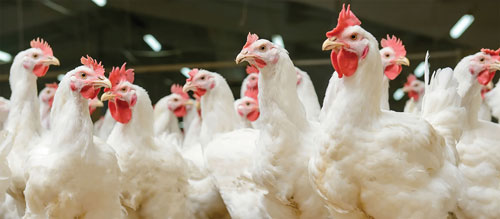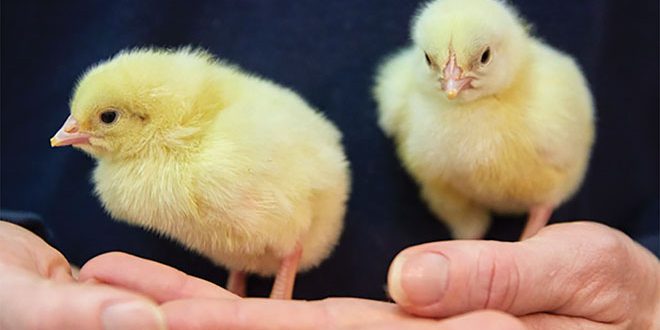In 2022, the Australian chicken meat industry tasked AgriFutures Australia and its Chicken Meat Program with commissioning and managing the industry’s first materiality assessment.
The materiality assessment aimed to show which topics – issues, risks and opportunities – were of greatest importance to the industry and its stakeholders, and to inform sustainability efforts across the industry. Sustainability consultancy Point Advisory was commissioned to undertake the assessment and prepared the report.
The report provides the outcomes of the materiality assessment and shows how these outcomes were determined. It details the findings of stakeholder and industry engagement and desktop analysis.
What is a materiality assessment?
A robust and credible process to determine what topics – issues and opportunities – are most important to a business or industry and its stakeholders.
How is a materiality assessment used?
To identify priority areas for action in a sustainability or industry-wide strategy, and to inform public-facing communications, including investor information.
Why is a materiality assessment important?
Investors are increasingly interested in the sustainability strategies and actions of businesses and industries, and in seeing the material topics that inform these strategies. As an example, Australian Stock Exchange guidance on environmental, social and governance disclosures requires a materiality assessment.

The Australian chicken meat industry tasked AgriFutures Australia with commissioning and managing the industry’s first materiality assessment.
About the industry
The Australian chicken meat industry contributes $7.9 billion to the Australian economy and sustains 58,000 jobs across the country. It accounts for 0.45 percent of Australian gross domestic product and 0.46 percent of Australian employment.
The industry has grown consistently at 4 percent per annum over the past three decades, with Australians currently consuming more chicken meat per annum than any other protein source.
The chicken meat industry plays a particularly significant role in supporting employment and economic output in regional and rural communities across the country.
This industry has a relatively low carbon footprint and provides an affordable, nutritional and locally grown source of protein for Australian consumers.
About AgriFutures Australia
The AgriFutures Chicken Meat Program’s purpose is to invest in research, development and extension, to increase knowledge and understanding that fosters an innovative, adaptive and valuable chicken meat industry in Australia. Its vision is to grow the long-term prosperity of the Australian chicken meat industry.
Program objectives from the AgriFutures Chicken Meat Program RDE Plan 2019-2022 are focused on four key areas – food, the environment, the chicken and the consumer.
- Improving food safety of Australian chicken meat
- Developing and implementing measures to improve the industry’s impact on the environment
- Improving chicken meat production through the whole supply chain
- Improving the industry’s ability to meet consumer needs.
Also crucial to the program are the activities that enable the Australian chicken meat industry to prosper, including training and capacity building opportunities that deliver value to the industry.
To support the continued development and sustainability of the Australian chicken meat industry, the AgriFutures Chicken Meat Program invests in targeted high-impact investment RDE to optimise flock performance, efficiency and industry productivity. Continuous improvement and ongoing RDE is required to enable chicken meat to retain its position as the most affordable and popular meat on the domestic market.
Results
The most material topics were food safety and animal welfare, followed by food security, biosecurity, climate change and health, safety and wellbeing. Other highly material topics included cost of living, price pressures and stability, and supply chain stability, alongside job creation.
Environmental management and feedstock were particularly important topics. Ethical conduct and transparency, and transparency, labelling and marketing also scored highly.
At the lower end of the assessment were topics such as activism and protest, and cybersecurity. While all topics were seen as important, these had relatively lower importance for the industry and its stakeholders.

Ethical conduct and transparency, and transparency, labelling and marketing scored highly.
Interpreting the results
The results of the materiality assessment demonstrate the importance of safety, security, welfare and wellbeing to the Australian chicken meat industry.
The fact that animal welfare and food safety were the most important topics shows that the industry prioritises the wellbeing of the chickens throughout their life cycle in the industry, and ensuring food is safe for Australian consumers.
The importance of topics related to food security, cost of living and the stability of prices and supply chains also shows that the industry plays a crucial role in feeding Australians.
Maintaining this stability and security will be important for the industry’s own sustainability into the future.
The relatively high scores for environmental topics such as climate change mitigation, adaptation and resilience, feedstock and sustainable packaging are also noteworthy.
These scored highly for importance to both the industry and its stakeholders.
Finally, transparency, labelling and marketing scored highly, reflecting a common theme from stakeholder engagement that the industry could do more to market itself as an affordable, sustainable and healthy source of protein.
The report in its entirety can be read by visiting agrifutures.com.au/product/materiality-assessment-of-the-australian-chicken-meat-industry/

